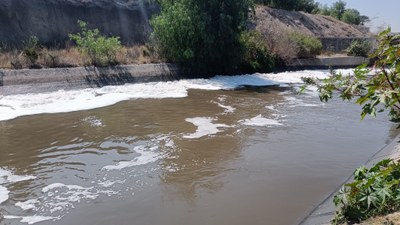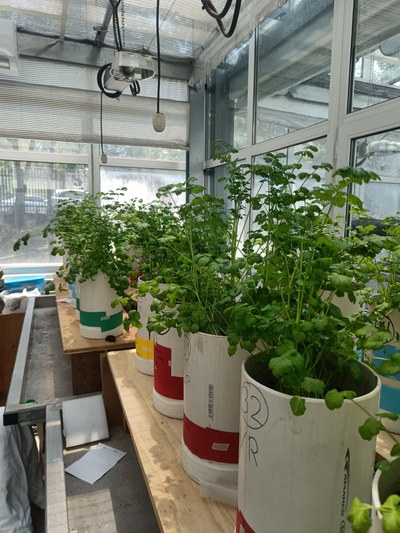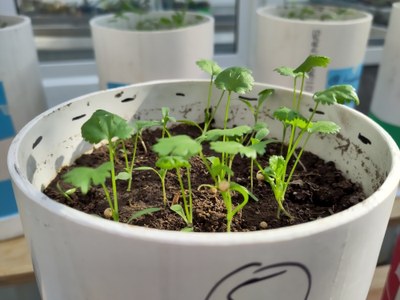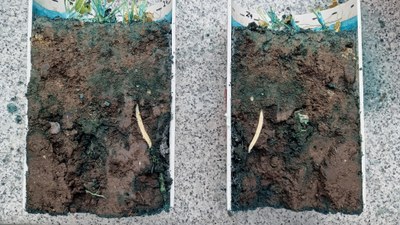Pollutant - Antibiotic Resistance - Pathogen Interactions in a Changing Wastewater Irrigation System (PARES, DFG FOR 5095).
The use of wastewater for irrigation in agriculture is an important way to alleviate water shortage and increase food production under the conditions of a growing world population and a changing climate. Infrastructure investments to achieve Sustainable Development Goal 6 "Clean Water and Sanitation" lead to a shift from irrigation with untreated wastewater to irrigation with treated wastewater. This switch leads to a reduction in the input of organic carbon, nutrients and many pollutants into the environment. However, the switch can also mobilize pollutants such as antibiotics and disinfectants that have accumulated in the soils in the past during irrigation with untreated wastewater. We therefore postulate that the implementation of conventional wastewater treatment in established irrigation systems that have used untreated wastewater in the past is associated with hitherto unforeseen risks. These risks result from
- remobilisation of pollutants accumulated in the soil in the past, which lead to
- pollutant concentrations in soils and plants that cause (co-)selection of antibiotic resistance, with
- release and concentrations of pollutants as well as selection of antibiotic resistance depending on the soil type.
However, a fundamental understanding of the (co)selection processes of resistant bacteria and the transfer of resistance genes under the influence of subinhibitory concentrations of antibiotics and disinfectants and their combinations in soils and plants is still lacking to assess the extent and relevance of these risks. Moreover, colloidal and spatial control factors of these interactions are poorly understood. Little research has also been done on the coupling of the behavior and effects of antibiotics and disinfectants under subtropical conditions, where elevated temperatures can increase both, the selection of resistant bacteria but also the dissipation of organic pollutants to a previously unknown extent. The implementation of wastewater treatment in the world's largest wastewater irrigation system, Mexico City - Mezquital Valley, provides an opportunity to gain the necessary process understanding to assess the abovementioned risks. The PARES research unit will elucidate the controlling mechanisms of the dynamics of contaminants and multidrug-resistant bacteria during the transition from irrigation with untreated wastewater to irrigation with treated wastewater. Doing so, the research unit will provide a basic process understanding of the interactions between the behavior of different pollutants and bacteria and the selection and spread of antibiotic resistance in agroecosystems. For achieving this goal, the research unit merges the expertise of soil scientists, clinical and environmental microbiologists, microbial taxonomists and environmental systems scientists, which is organized in 7 Projects and a Coordination Project:
Coordination Project: Jan Siemens, Benny Heyde, Justus-Liebig-Universität Giessen
Project 1: Role of natural nanoparticles and colloids for mobility and bioavailability of antibiotics in soil, Lena Juraschek, Melanie Braun, Wulf Amelung, Universität Bonn
Project 2: Release and dissipation of antibiotics and disinfectants in different soil types soil as influenced by irrigation water quality, Benny Heyde, Ines Mulder, Jan Siemens, Justus-Liebig-Universität Giessen
Project 3: Evolution and selection of resistant bacteria in the presence of subinhibitory concentrations of micropollutants, Katharina Axtmann, Gabi Bierbaum, Universitätsklinikum Bonn
Project 4: Effects of irrigation water quality and soil type on the soil and plant associated microbiome, abundance, diversity and transferability of antibiotic resistance genes in Gram-positive bacteria, Leila Soufi, Elisabeth Grohmann, Berliner Hochschule für Technik
Project 5: Effects of irrigation water quality and soil type on the soil and plant associated microbiome, abundance, diversity and transferability of antibiotic resistance genes in Gram-negative bacteria, Sara Gallego, Kornelia Smalla, Julius Kühn Institut
Project 6: Isolation and characterization of environmental and fecal bacteria carrying antibiotic resistance genes, Dipen Pulami, Stefanie P. Glaeser, Justus-Liebig-Universität Giessen
Project 7: Integrated modelling of the selection of resistant bacteria and horizontal transfer of resistance genes caused by exposure to antibiotics and disinfectants, Matthias Böckmann, Christiane Zarfl, Universität Tübingen
The research unit is funded by the German Research Foundation (DFG, FOR 5095)




